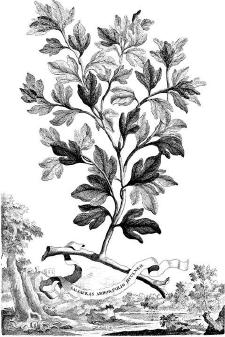|
FRESH STUFF DAILY |
|
|
||
|
|
||
|
|
||
|
SEE ALL SIGNED BOOKS by J. Dennis Robinson click here |
||
Page 3 of 3
ring’s account offers brief but exquisite detail of the Natives and of local plant, bird, fish, animal life, plus soil and seed-growing conditions. In the end things went badly. Pring reports that 140 Indians surrounded the English barricade, but were frightened off by a warning cannon blast and by two fierce mastiffs brought from England. We even know the dogs’ names – Foole and Gallant. After packing both Speedwell and Discoverer with the covered sassafras, and after stealing a 17-foot long birch bark canoe from the Indians, Pring and his men departed.
Except in New Hampshire, Martin Pring’s voyage rarely rates more than a paragraph or two in the thick volumes of European explorers before 1620. His name is lost among others whose trips made deeper dents in the British mind – names like Gosnold, Weymouth, Champlain, Cabot and Smith. If Pring’s voyage proved anything special, according to New England histories, it was that safe, profitable sorties into the New World were possible. Europeans had been fishing successfully off the Grand Bank in Atlantic waters for a century. Historian David B. Quinn estimated that at least 650 European ships had made the transatlantic journey between 1492 and 1612. Pring, among others, proved that there were riches on land as well as in the sea. Then along came the Puritans. Landing in Plymouth in 1620, perhaps, near the very sight where Pring dug his sassafras, this small band planted the theory that America was settled in a quest for religious freedom. The myth took root and flourishes to this day. Copyright (c) 2005 by J. Dennis Robinson/ SeacoastNH.com. All rights reserved.
Please visit these SeacoastNH.com ad partners.
News about Portsmouth from Fosters.com |
| Friday, April 19, 2024 |


|
Copyright ® 1996-2020 SeacoastNH.com. All rights reserved. Privacy Statement
Site maintained by ad-cetera graphics

 HISTORY
HISTORY



 The Bristol merchants who sponsored the trip gained a huge return on their investment. Pring made another trip to the New World, but not to the Piscataqua. The Sassafras crazed quickly faded. The plant, apparently, has some dangerous qualities too. Sassafras tea was banned by the United States Food and Drug Commission in 1976. Pring, for the record, died in 1626,
The Bristol merchants who sponsored the trip gained a huge return on their investment. Pring made another trip to the New World, but not to the Piscataqua. The Sassafras crazed quickly faded. The plant, apparently, has some dangerous qualities too. Sassafras tea was banned by the United States Food and Drug Commission in 1976. Pring, for the record, died in 1626, 














